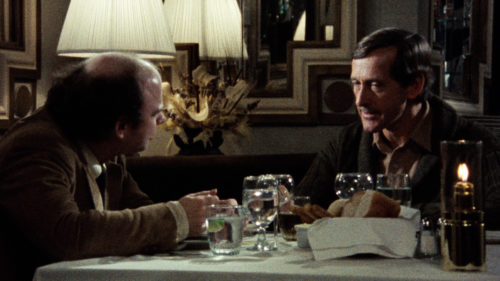I’ve been teaching a course on philosophy and film. As it nears the end, I’m thinking about films that didn’t make it into the course but that could have and perhaps should have. This version of the course (I’ve taught it a few times) focused on the problem of identity and moral personhood: numerical identity in Inception and Solaris, for example, and differences between persons and what Harry Frankfurt calls “wantons” in A Clockwork Orange, The Servant, and Vertigo, among others. We tended to focus more on content than form, but we were never very far from issues of truth, reality, and the art of film.
Which made me want to identify films that bring these epistemological and ontological themes in both life and art together with personhood. In the films of Stanley Kubrick, there’s something of a dialectic between truthfulness and realism. Realism can reveal truth but also obscure it, and be obscured by it. And “realistic” isn’t the right word for the film I have in mind; “truthful” is closer to the mark. Stanley Kubrick’s Eyes Wide Shut (1999) portrays intimate personal relationships truthfully. What does that mean?
The film is about a couple, Alice and Bill, who, although they’ve been married at least seven years, still seem to be adjusting to the transition from passionate love to a companionate marriage. When we first see them, as they are preparing to leave for a Christmas party, they are very much in the companionate mode: intimate and trusting, but something less than passionate. Continue reading




